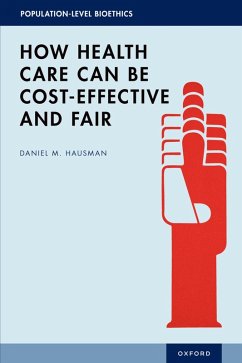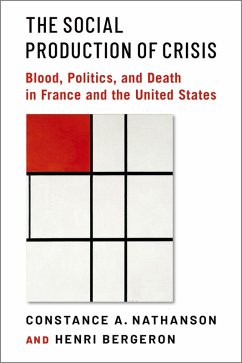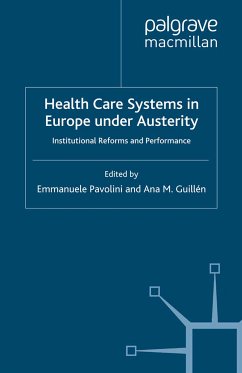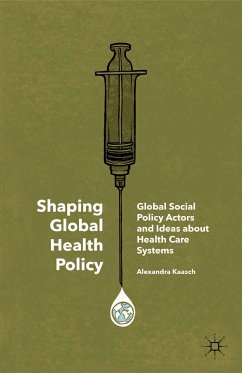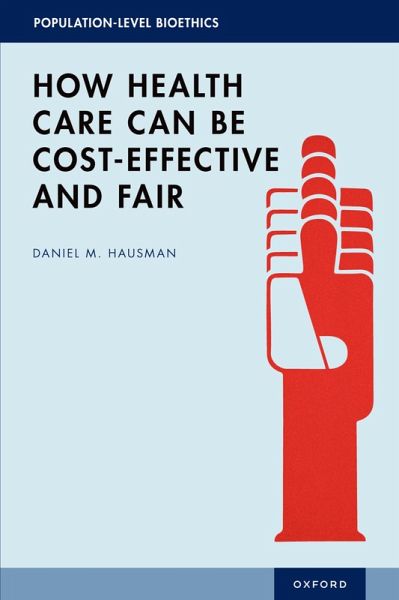
How Health Care Can Be Cost-Effective and Fair (eBook, PDF)

PAYBACK Punkte
14 °P sammeln!
Methods designed to guide the allocation of healthcare so as to maximize population health have been criticized as fundamentally unfair. In a closer analysis of this ethical critique of the use of cost-effectiveness author Daniel M. Hausman responds to the main complaints about the unfairness of cost-effectiveness, while also recognizing that there should be other factors--especially in cases of discrimination--guiding health-related treatment. Central to How Health Care Can Be Cost-Effective and Fair is whether cost-effective allocation of healthcare violates ethical constraints. Several comm...
Methods designed to guide the allocation of healthcare so as to maximize population health have been criticized as fundamentally unfair. In a closer analysis of this ethical critique of the use of cost-effectiveness author Daniel M. Hausman responds to the main complaints about the unfairness of cost-effectiveness, while also recognizing that there should be other factors--especially in cases of discrimination--guiding health-related treatment. Central to How Health Care Can Be Cost-Effective and Fair is whether cost-effective allocation of healthcare violates ethical constraints. Several commentators argue that using cost-effective reasoning to guide the distribution of healthcare is fundamentally unfair, not just because it does not take distribution into account, but because it fails to prioritize the severity of illness and fails to give everyone, and especially disabled people and those from historically underprivileged populations, a fair chance of being treated. While Hausman recognizes the complexity and shortcomings of cost-effective reasoning, he maintains that it should be a leading principle in the allocation of health-related resources. In Hausman's view, many values--such as compassion, freedom, respect, and solidarity should govern healthcare in addition to promoting well-being and treating individuals fairly. In its efforts to promote population health fairly, healthcare should respond to and respect individuals' values and choices.
Dieser Download kann aus rechtlichen Gründen nur mit Rechnungsadresse in A, B, BG, CY, CZ, D, DK, EW, E, FIN, F, GR, HR, H, IRL, I, LT, L, LR, M, NL, PL, P, R, S, SLO, SK ausgeliefert werden.




